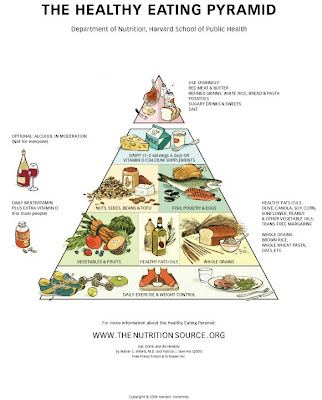A wise decision can only be made if you know the facts. Few people understand what happens when they drink alcoholic drinks. What effect does it have on:
behaviour
the body
other people?
What is alcohol?
Alcohol, technically known as ethanol, is a type of drug which can affect behaviour, the health of your body, and ultimately other people.
What happens to alcohol in the body?
Alcohol takes priority over other nutrients in digestion. It gets into the bloodstream fast and travels to all the organs of the body.
After a person drinks an alcoholic beverage, his or her blood concentration of alcohol rises rapidly. Alcohol is rapidly absorbed into the blood from all parts of the gastrointestinal tract. You have probably been warned, with good reason, not to drink on an empty stomach. Alcohol absorption depends partly on the rate of stomach emptying. Food slows the stomach's emptying rate and stimulates secretions, such as gastric acid, which dilute the alcohol and slow its absorption into the blood stream.
A social drinker who weighs 150 pounds and has normal liver function metabolites about 7 to 14 g of alcohol per hour (100 to 200 mg//kg of body weight per hour). This is about 8 to 12 ounces of beer or half an ordinary-sized drink. When the rate of alcohol consumption exceeds the liver's metabolic capacity, blood alcohol rises and symptoms of intoxication appear.
When a man and a woman of similar size drink the same amount of alcohol, the woman retains more alcohol in her blood stream. Women cannot metabolize as much alcohol in her stomach cell. They have lower amount of alcohol dehydrogenase. Women are also much quicker to develop alcohol-related ailment, such as cirrhosis of the liver, than men with the same drinking history.
The liver is the only organ which can process alcohol. It breaks down alcohol into energy components. This can only be done slowly, a little at a time. The rest must continue to circulate in the blood waiting its turn. Energy organ in the body is now 'at risk'.
Alcohol then goes on to affect the brain and nervous system more than any other organs. Acting as a sedative, alcohol tends to relieve the drinker's anxiety, caused slurred speech, reduce coordination in walking, impair judgement, and encourage inhibited behaviour. The mechanism of these effects is thought to be linked to changes in neurotransmitter synthesis and altered cell membrane fluidity in the brain. Because alcohol lowers inhibition, it appears to act as a stimulant, but in fact it is a powerful depressant. As William Shakespear wrote, "It stirs up desire, but takes away the performance." Because it reduces secretion of the body's antidiuretic hormone, alcohol increases urination. It also causes the blood vessels to dilate, releasing body heat.
Alcohol has an anaesthetic effect which causes a change in behaviour. Some will vaporise as the blood passes through the lungs. The 'breath' test relates to the amount of alcohol circulating in the blood.
Due to changes in hormone activity, more water is release into the urine, causing dehydration and thirst. This may prompt people to have yet another drink.
The effects of consistent heavy drinking may be:
Higher blood fat levels as alcohol is changed into energy components
Damage to some of these organs of the body-liver, oesophagus , stomach, intestines, pancreas, brain, heart.
How does alcohol affect behaviour?
Alcohol is a depressant, not a stimulant. Self confidence is increased only because judgement and sense of responsibility are decreased. The speed at which this happens depends on:
The strength of the drink.
The amount consumed.
Individual makeup, including size and weight.
Age-young people react more quickly than mature adults.
The sex of the drinker-women are affected more quickly than men.
- The control centre in the brain is slowdown. Judgement is impaired. Instead of being 'pepped up', you are in fact being slowdown.
- Speech and vision become blurred.
- Muscle reflexes are slowed. They may be staggering, vomiting, and loud behaviour.
- Breathing rate is slowed. Feeling of drowsiness increases.
- Heart beat becomes slower. At this stage you may 'pass out'.
- In extreme cases, body functions are completely paralysed, resulting in extreme body shock and death.
When intoxication happen?
As soon as alcohol is taken into the body faster than the body can handle it, alcohol circulating in the blood affects the brain, causing intoxication.
Alcohol and other drugs are a dangerous mix. If alcohol is taken with other drugs, the effects are multiplied many times. They are completely unpredictable and dangerous.
Alcohol and nutrition
Good nutrients can help the body handle alcohol. It cannot protect you against dangers arising from heavy drinking.
B group vitamins needed to release energy from fuel nutrients are used by the liver in the breakdown of alcohol. They are taken from food. They may not be available to process glucose to supply vital energy for the brain and nervous system. This supply may be depleted for several hours after drinking.
Excess energy components from the breakdown of alcohol are changed to fat and sent to the fatty tissue for storage. The alcohol you drink may put you on weight.
Many people who drink too much suffer from malnutrition. Essential nutrients are not absorbed as readily, and some are wasted in processing the alcohol.
Drinking a lot, especially before meals, means that appetite may be reduced for the nutritious foods.
Any one of us can become addicted if we drink long enough and hard enough.












